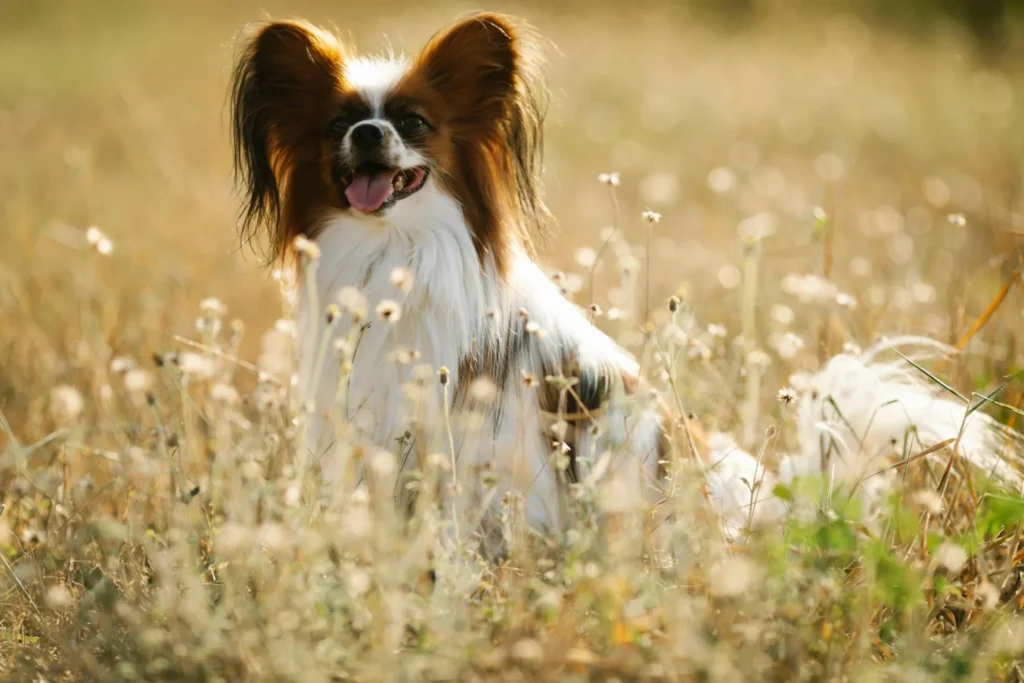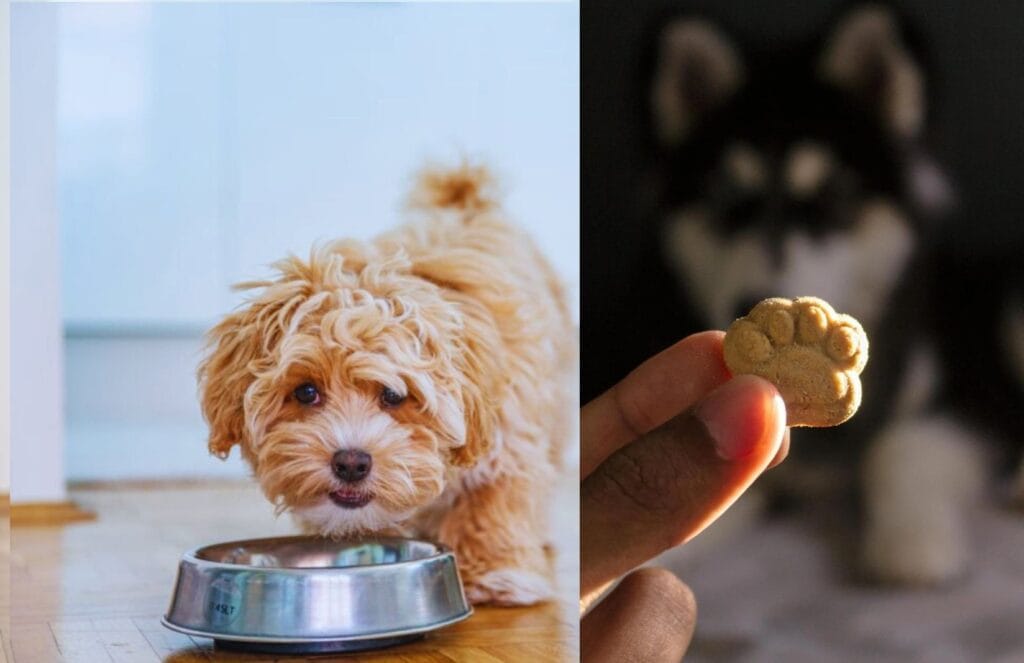Introduction: The Energetic Enigma of Poodles
Poodles, with their bouncy curls and vibrant personalities, are known for their boundless energy and zest for life. But like all good things, even a poodle’s pep has its season. If you’ve found yourself wondering, “What age do poodles slow down?” you’re not alone. This comprehensive guide will walk you through the journey of your poodle’s energy levels, from puppyhood to their golden years. 🐾
Let’s embark on this enlightening adventure to understand the whens, whys, and hows of your poodle’s changing pace. Whether you’re a first-time poodle parent or a seasoned enthusiast, this article promises to shed light on every aspect of your furry friend’s energy trajectory. 🏃♂️💨
What Does “Slowing Down” Mean for Poodles? 🐌
Before we dive into the specifics, let’s clarify what we mean by “slowing down.” It’s not just about your poodle moving at a slower pace physically. Slowing down encompasses a range of changes:

- Physical changes: Less enthusiasm for long walks or play sessions
- Behavioral shifts: Increased nap time, less interest in toys
- Cognitive alterations: Slower response to commands, less curiosity about surroundings
- Energy fluctuations: Bursts of energy followed by longer rest periods
Remember, slowing down is a natural part of aging for all dogs, including our beloved poodles. It’s not a race to immobility, but rather a gradual shift in lifestyle and needs. 🛌
The Poodle Life Stages: Energy Through the Years 📅
To understand when poodles slow down, we need to look at their life stages. Each stage brings its own energy levels and needs:
1. Puppy Stage (0-1 year) 🚀
- Boundless energy
- Short bursts of intense play
- Frequent naps to recharge
2. Adolescent Stage (1-2 years) 💥
- Peak physical condition
- High energy, sometimes challenging to manage
- Mental stimulation crucial
3. Adult Stage (2-7 years) ⚡
- Steady, reliable energy levels
- Good balance of play and rest
- Prime years for activities and training
4. Mature Adult Stage (7-10 years) 🌟
- Gradual decrease in energy
- Still enjoys play, but in shorter bursts
- May start showing signs of slowing down
5. Senior Stage (10+ years) 🌈
- Noticeable decrease in energy
- Longer rest periods
- Preference for gentle activities
The Magic Number: When Do Poodles Typically Slow Down? 🔢
While every poodle is unique, most start showing signs of slowing down around 7-8 years of age. However, this can vary based on several factors:
- Size: Smaller poodles (toys and miniatures) often stay spry longer than standard poodles
- Genetics: Some poodle lines are known for their longevity and sustained energy
- Health: Well-maintained poodles may keep their pep longer
- Lifestyle: Active poodles tend to maintain higher energy levels as they age
Let’s break it down by poodle size:
| Poodle Size | Average Age of Slowing Down | Notes |
|---|---|---|
| Toy | 8-10 years | Often maintain puppy-like energy into later years |
| Miniature | 7-9 years | Balance of energy and calmness in mid-life |
| Standard | 6-8 years | May slow down earlier due to size and potential joint issues |
Remember, these are averages. Your poodle might be the energetic exception or the early relaxer! 🏆
Why Do Poodles Slow Down? The Science Behind the Snooze 🧬
Understanding why poodles slow down can help us provide better care. Here are the primary reasons:
- Cellular Aging: As cells age, they don’t regenerate as quickly, leading to slower metabolism and energy production.
- Hormonal Changes: Decreases in growth hormone and thyroid function can affect energy levels.
- Muscle Mass Reduction: Age-related muscle loss (sarcopenia) can make activities more tiring.
- Joint Health: Wear and tear on joints can make movement less comfortable.
- Cognitive Changes: Brain aging can affect a poodle’s interest in activities and response times.
- Sensory Decline: Diminished sight or hearing can make a poodle less reactive to stimuli.
The Tell-Tale Signs: How to Spot a Slowing Poodle 🕵️♀️
Recognizing the signs of slowing down can help you adjust your poodle’s care accordingly. Look out for:
- Longer Naps: More time spent sleeping or resting
- Reluctance for Long Walks: Preferring shorter outings
- Less Play Initiation: Not bringing toys as often
- Difficulty with Stairs: Hesitation or avoidance of steps
- Weight Gain: Despite no change in diet
- Greying Fur: Particularly around the muzzle
- Reduced Excitement: Less enthusiastic greetings
Pro Tip: Keep a “Poodle Journal” to track these changes over time. It can be invaluable for vet visits! 📓
Poodle vs. The Pack: How Do They Compare? 🐕🦺
Poodles are known for their longevity and sustained energy. Let’s see how they stack up against other popular breeds:
| Breed | Average Lifespan | Age of Slowing Down | Energy Retention Rating (1-5) |
|---|---|---|---|
| Poodle (Standard) | 12-15 years | 7-8 years | ⭐⭐⭐⭐ |
| Labrador Retriever | 10-12 years | 6-7 years | ⭐⭐⭐ |
| German Shepherd | 9-13 years | 5-6 years | ⭐⭐⭐ |
| Chihuahua | 14-16 years | 9-10 years | ⭐⭐⭐⭐ |
| Golden Retriever | 10-12 years | 6-7 years | ⭐⭐⭐ |
As you can see, poodles tend to maintain their energy longer than many larger breeds, rivaling even some smaller dogs in their vitality! 🏅
Keeping the Pep in Your Poodle’s Step: Prevention Strategies 🏋️♀️
While aging is inevitable, there are ways to keep your poodle sprightly for longer:
- Regular Exercise: Tailor activities to your poodle’s age and ability
- Mental Stimulation: Puzzle toys and training sessions keep the mind sharp
- Balanced Diet: High-quality food appropriate for their life stage
- Weight Management: Maintain a healthy weight to reduce strain on joints
- Regular Vet Check-ups: Catch and address health issues early
- Dental Care: Good oral health contributes to overall well-being
- Supplements: Consult your vet about joint supplements or fish oils
Remember, prevention is always better than cure! 🍎
When Slowing Down is Concerning: Red Flags to Watch For 🚩
While gradual slowing down is normal, sudden changes could indicate health issues:
- Abrupt Energy Loss: Especially if accompanied by other symptoms
- Excessive Thirst: Could indicate diabetes or kidney issues
- Difficulty Breathing: Potentially heart or lung related
- Disorientation: Might suggest cognitive dysfunction
- Incontinence: Could be a sign of various health problems
- Visible Pain: Limping or crying out when moving
When in doubt, always consult your veterinarian. Better safe than sorry! 👨⚕️
Adapting to Your Poodle’s New Pace: Care Tips for the Slower Years 🐾
As your poodle slows down, their care needs will change. Here’s how to adapt:
- Adjust Exercise: Shorter, more frequent walks instead of long hikes
- Comfort is Key: Provide soft bedding and easy access to favorite spots
- Diet Modifications: Consult your vet about senior-specific foods
- Grooming Assistance: More frequent, gentler grooming sessions
- Temperature Control: Protect from extreme heat and cold
- Gentle Play: Adapt games to be less physically demanding
- Routine Matters: Maintain a consistent daily schedule
Remember, a slower poodle is still a happy poodle when well-cared for! 😊
The Fountain of Youth: Keeping Your Poodle Young at Heart 💖
While we can’t turn back time, we can keep our poodles feeling youthful:
- New Experiences: Safe, age-appropriate adventures stimulate the mind
- Social Interaction: Playdates with calm dog friends or gentle human visitors
- Positive Reinforcement: Praise and treats for engagement keeps spirits high
- Massage: Gentle massages can soothe aches and promote bonding
- Adaptable Toys: Introduce toys that match their current abilities
- Scent Work: Engage their powerful noses with hide-and-seek games
- Hydration Station: Encourage drinking with water fountains or flavored ice cubes
It’s not about being the fastest poodle, but the happiest poodle! 🎉
When Time Catches Up: Managing Health Issues in Aging Poodles 🏥
As poodles age, they may face health challenges. Here’s a quick guide to common issues:
| Health Issue | Symptoms | Management |
|---|---|---|
| Arthritis | Stiffness, limping | Joint supplements, gentle exercise |
| Dental Disease | Bad breath, difficulty eating | Regular dental cleanings, tooth-friendly toys |
| Cognitive Dysfunction | Confusion, changes in sleep patterns | Mental stimulation, consistent routine |
| Vision/Hearing Loss | Bumping into objects, not responding to calls | Clear pathways, hand signals |
| Heart Disease | Coughing, fatigue | Medication, diet changes |
Early detection and management can significantly improve quality of life. 💊
The Silver Lining: Embracing Your Poodle’s Golden Years 🌅
A slower poodle doesn’t mean a less lovable poodle. The golden years bring their own joys:
- Deeper Bond: More relaxed time together strengthens your connection
- Predictable Routine: Easier to plan your day around a calmer poodle
- Wisdom: Older poodles often have impeccable manners and understanding
- Appreciation: Every day becomes more precious
- Cuddle Time: More opportunities for quiet companionship
Cherish these moments – they’re the crown jewels of your poodle parenting journey. 👑
FAQs: Your Burning Questions About Poodle Energy Answered 🔥
Q: Can diet affect how quickly a poodle slows down?
A: Absolutely! A balanced, age-appropriate diet can help maintain energy levels and overall health.
Q: Are there exercises safe for older poodles?
A: Yes! Swimming, short walks, and gentle play sessions are great for senior poodles.
Q: My poodle is 10 but still acts like a puppy. Is this normal?
A: Some poodles, especially smaller varieties, can maintain high energy well into their senior years. Enjoy it!
Q: Should I let my older poodle sleep more?
A: Generally, yes. Older poodles need more rest, but consult your vet if sleep patterns change dramatically.
Q: Can mental stimulation help keep my poodle young?
A: Definitely! Puzzle toys, training sessions, and new experiences can help keep your poodle mentally sharp.
Conclusion: Celebrating Every Stage of Your Poodle’s Life 🎭
From the bouncy puppy days to the gentle golden years, each stage of your poodle’s life brings its own magic. Understanding when and why poodles slow down allows us to provide the best care and cherish every moment.
Remember, slowing down isn’t about losing something – it’s about entering a new, equally beautiful phase of life. Your poodle’s energy may change, but their love for you remains constant.
So, whether your poodle is still zooming around the park or preferring cozy couch cuddles, embrace the journey. After all, a life shared with a poodle, at any pace, is a life well-lived. 🌈🐾
Keep loving, keep caring, and keep celebrating your amazing poodle companion!



